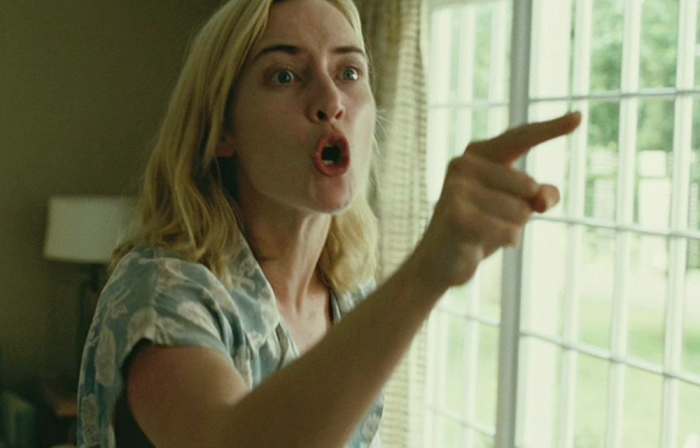We don’t always act in loving ways.
There’s so much cruelty in the world, and how can we possibly love that which is cruel?
Perhaps we can take our first clue from Aldous Huxley who said, “We can only love what we know, and we can never know completely what we do not love. Love is a mode of knowledge.”
Most of us weren’t taught to love in spite of cruelty. Sure, we received the suggestion a few times along the way, but love in the face of cruelty is a skill most of us never mastered. But if Aldous Huxley is right and we can never completely know what we do not love, imagine how much we misunderstand when we do not love.
In the title I promised to reveal the real reason behind all that f*cked up stuff we do—all that stuff we do to sabotage ourselves, our relationships and our dreams, as well as all that stuff we do that hurts others.
First, let’s look at where this mess may have begun.
Many of us grew to understand the world under the paradigm of good and evil. We were taught that some people do good things because they’re good and others do evil things because they’re evil. The stories we grew up with were made up of good characters and evil ones. Some of them were easy to peg from the start but others specifically captured our attention because of their moral ambiguity. We were often made to wonder the entire time whether those characters were going to turn out to be good or bad. What we liked about them was their mystery. We got to play detective throughout the story, collecting clues to discern their true intentions. Their true natures hung in suspense, only to finally be revealed at the end.
So when we come across people in real life who seem to be good people who sometimes do bad things (or the reverse), we find ourselves stumped, wondering, “Are they really good or are they really bad?”
We have a hard time reconciling that there are shades of grey in a paradigm that promises black or white.
This way of understanding people as either good or bad limits our ability to see what’s really going on. When we look at people simply in terms of good and evil, we are unable to see the forces beneath that motivate them to act the way they do. And to me, those forces are infinitely more interesting and useful than the “good and evil” paradigm.
And if Aldous Huxley is right, loving them is the only way to truly see and understand them.
In my coaching practice, I help clients create exceptional relationships, a process that often begins with clearing out a whole lot of accumulated hurt and resentment. When couples feel angry or hurt by one another, often the most striking thing I notice when we talk about it is that they have become so polarized that they can’t see one another clearly anymore. They actually seem to go blind in one eye—the eye that sees the loving part of the other person. They cast their partner in a role: the evil villain. In that paradigm, all they can see is black and white. Everything their partner does seems devoid of consideration for them or intended to hurt them.
When my client is ranting about all the hurtful, inconsiderate things their partner has done, I often ask:
“Assuming they are a good person, why might they have done that?”
I don’t mean to condone their partner’s actions. I’m actually not usually concerned with what their partner is doing. My goal is to help my client regain their ability to acknowledge the shades of grey so they can feel the love for—and loved by—their partner again. Because only then can they understand them. Remember, loving is the only way to know someone completely.
“But I’m hurt and angry! How can I just love this person who is hurting me?”
Well, I have alternative paradigm to offer that may help: What if everything we do originates from love?
All those parts of us, the qualities that help us to succeed, to connect with others, to add kindness and compassion to the world, as well as the qualities that hold us back, that hurt people, that sabotage our dreams—what if all those parts of us are acting out of love for ourselves or for others?
What if it were just that sometimes (often) what starts out as love has to make it through some pretty weird filters before it gets to where it’s going, and by the time it gets there sometimes it’s kinda nasty?
What if there is no evil? What if evil is actually just love tarnished by pain and fear?
Imagine there’s a part of you that wants to protect you from experiencing rejection. That seems like a loving thing to want for someone, right? But when the strategy we use to protect ourselves from rejection ends up keeping us from wholeheartedly pursuing the things we want and doing the things we know are right, we will likely get frustrated with our own lack of courage. Our love and care get distorted into something that’s detrimental to us—and ultimately unloving.
Now imagine there’s someone else in the equation: a loved one. What happens when our fear of rejection keeps us from being vulnerable with them? What happens when our love for them makes the possibility of their rejection even harder to bear? Perhaps we keep secrets, act pridefully and keep our emotional walls up. And perhaps we do that more because of love than because we are bad.
I’d go as far as saying that even cruelty toward others is just deformed, misguided love. And seeing the world this way entirely removes the burden of resentment and hatred that so many of us go through life carrying.
It’s not an easy perspective to hold. We are very attached to our anger. We feel we have a right to be angry, and we probably do, but is anger a right worth defending when love and understanding feel so much better?
It isn’t easy, but it’s worth it.
Most of us have someone in our lives whom we resent, or perhaps even hate. This person probably did something terrible to us and we have every right to be upset. But let’s try something:
Let’s try and think of what the loving intention, no matter how misguided, might have been underneath what they did (loving toward us, toward themselves, or toward another). Let’s make a practice of seeing beneath the good versus evil paradigm and get curious instead. What motivated them? How did love motivate them?
Feel free to comment below or send me a message. I would love to have a dialog about this topic. I think it’s incredibly important to reframe the way we think about good and evil so that we can see the best in people—so that we can nurture the love in them and heal those parts that get in love’s way.
~
Author: Summer Engman
Editor: Caroline Beaton
Photo: Flickr

 Share on bsky
Share on bsky





Read 11 comments and reply